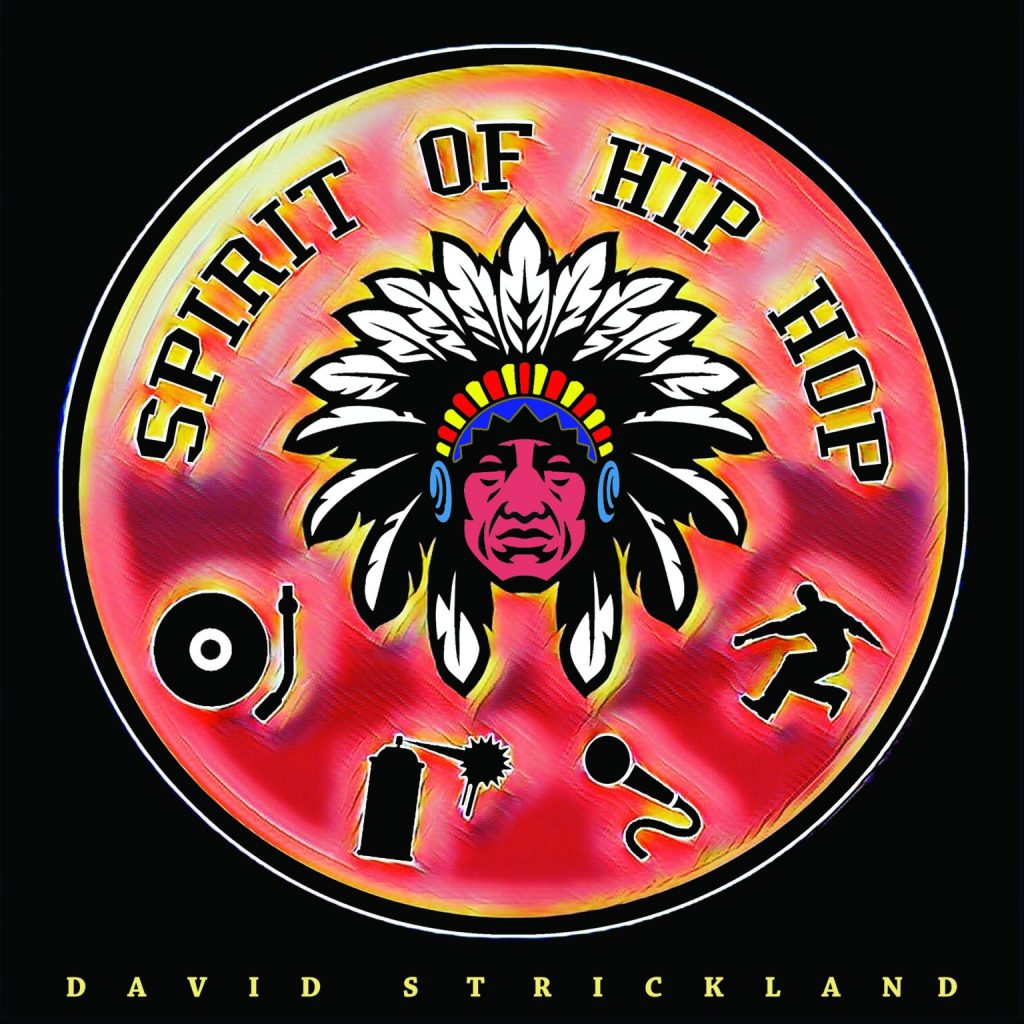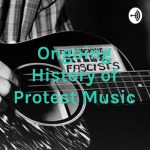
For over two decades, David Strickland established a reputation as a sought-after producer, mixer, and engineer. He has won both Grammy and Juno (the Canadian Grammys) awards and has worked with a wide range of artists, including Pete Rock, Erick Sermon, EPMD, Keith Murray, Redman, Method Man, Drake, and just about every notable Canadian Hip-Hop artist. After an impressive career behind the scenes, this is his first album, where he receives prime billing.
Even with his name being featured, Strickland uses his expertise as a producer and arranger to provide a platform for other artists to shine. On the album, Strickland taps into his heritage as a proud Mi’kmaq, whose family lineage can be traced back five generations. The tone of the album is set with the opening and title track “Spirit of Hip-Hop” which emphasizes how the spirit of hip-hop is embodied in indigenous culture. It is a spoken word intro from Ernie Paniccioli, an iconic hip-hop photographer and historian, that Strickland views as a mentor. The insightful narrative draws the parallels between native culture and hip-hop culture (“The DJ is the drum; the MC is the storyteller, the B-boy is the dancer, the aerosol artist or graffiti artist is the Sand Painter”).
Those connections are developed throughout the album, with several tracks featuring indigenous musical elements. It also features a wide array of notable indigenous artists such as Supaman and Artson from the States, and Que Rock, Snotty Nose Rez Kids, Drezus, and Leonard Sumner from Canada. Indigenous themes are heavily developed in several tunes. Two of the highlights are “Turtle Island” and “Feathers.” Both are rich in imagery and contain an empowering message.
Even though the album contains indigenous themes and musical elements, it would be a mistake to simply slap an indigenous label and view it as an album that will appeal to a niche audience. Many of the themes are universal. Also, the tunes are banging, so they accomplish the rare feat of moving the body and engaging the mind. One of the album’s more infectious tunes is “Armed & Dangerous,” a collaboration between EPMD and notable Canadian rapper Saukrates. The tune makes effective use of sampling “Stepping Razor” by Peter Tosh.
Concerning the universality of the content, a common subject addressed on the album is police brutality. Lyrics such as “Fuck em, we need less cops” (“Times Running Away”), “Ain’t nothing new on the block, getting shot by the cops” (“Turtle Island”) and “Looking so cold outside, remind me of the po-po, when they beat my ass that night and threw me in a chokehold” (“Rez Life”) especially resonate with the current political climate.
Another one of the many standouts is “Truth” featuring Que Rock, Soufy, Leonard Sumner, and the Godfather of Canadian Hip-Hop, Maestro Fresh Wes. Maestro has long used his platform to speak out for indigenous rights (most notably on his 1991 track “Nothing At All”). On “Truth,” Maestro also refers to Colin Kaepernick, who knelt in protest of police brutality. The poignant tune is a galvanising anthem of standing up against oppression.
One of the album’s greatest strengths is how it works as a cohesive whole. It is not just a collection of bangers, even though there is no shortage of them. The tracks interconnect to tell a story and take the listeners on a journey. Strickland succeeds as both a storyteller and a body mover. He has created a work of art which encompasses the times we are living in and is well worth a listen.

